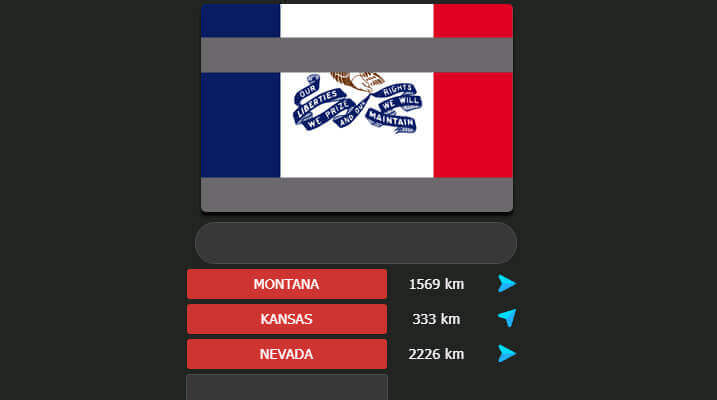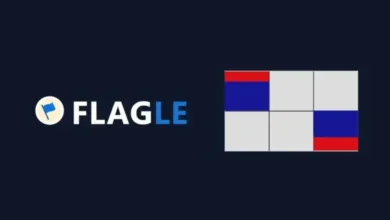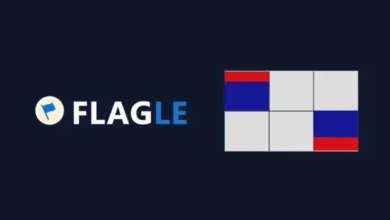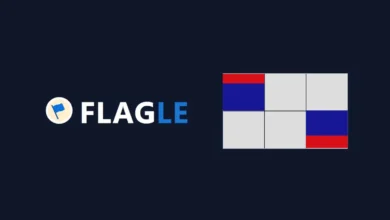Flagle: The Ultimate Word Puzzle Game That Challenges Your Geography Skills

A Complete Guide to Winning Flagle and Mastering Your Daily Challenge
Flagle has taken the puzzle world by storm, combining the thrill of geography with the addictive fun of word-guessing games. This engaging online game challenges players to identify world flags within limited attempts, offering a unique twist for puzzle enthusiasts and geography lovers alike. With its growing popularity, Flagle has become more than just a pastime—it’s a powerful tool to test memory, sharpen recognition skills, and connect with global cultures.
In this article, we provide a comprehensive overview of Flagle, its rules, strategies, tips, and secrets to help you succeed and enjoy the game to the fullest.
What is Flagle?
Flagle is a daily online game that tasks players with identifying a country’s flag. Similar to the viral sensation Wordle, Flagle gives players multiple chances to guess correctly. Instead of letters, however, Flagle reveals pieces of a flag with each attempt. The goal is to figure out which country’s flag is being shown before running out of attempts.
This clever mix of geography and puzzle-solving not only entertains but also educates players about world flags, countries, and their unique identities. Whether you are a student, traveler, or trivia lover, Flagle offers an engaging way to test your knowledge.
How to Play Flagle
The rules of Flagle are simple, yet the game can be surprisingly challenging:
- Daily Challenge: Each day, one random country flag is selected.
- Guess Attempts: Players typically have six attempts to identify the flag.
- Flag Reveal: With every incorrect guess, a portion of the flag is revealed.
- Hints: Each guess provides visual clues, making it easier to recognize the flag.
- Victory or Loss: The aim is to guess the flag correctly before all attempts are exhausted.
This unique gameplay design makes Flagle an addictive game where every attempt feels like a test of both knowledge and deduction skills.
Why Flagle is So Popular
The appeal of Flagle lies in its simplicity and challenge. Here are some of the main reasons behind its rising popularity:
- Educational Value: It helps players learn about different countries and flags in a fun way.
- Global Reach: People from all around the world can play, making it a cross-cultural experience.
- Short Gameplay: Each puzzle can be completed within minutes, making it perfect for daily play.
- Shareable Results: Players can share their winning streaks with friends, adding to the fun and competitiveness.
- Brain Training: It sharpens memory, improves observation, and strengthens geographical knowledge.
Winning Strategies for Flagle
To consistently win at Flagle, adopting smart strategies can make a huge difference.
1. Start with Common Flags
When unsure, begin by guessing commonly known flags like the United States, United Kingdom, Canada, or France. These serve as a good base for narrowing down possibilities.
2. Recognize Color Patterns
Most flags are designed with unique color schemes. Pay attention to combinations like red, white, and blue, or green, yellow, and black. Identifying dominant colors early can significantly narrow the field.
3. Focus on Symbols and Shapes
Many countries use stars, crosses, moons, or other symbols. Even if only a portion is revealed, spotting these can provide major hints.
4. Use Geographical Logic
Think about regional similarities. For example, many African countries use green, yellow, and red, while Scandinavian countries have cross designs.
5. Practice Daily
The more you play, the more familiar you become with flags, boosting recognition speed and accuracy.
Benefits of Playing Flagle
Flagle is not just a game—it offers several advantages:
- Boosts Memory: Memorizing flags strengthens recall abilities.
- Enhances Concentration: Focusing on details improves attention span.
- Cultural Awareness: It connects players with global symbols and national identities.
- Stress Relief: Short daily puzzles can act as a relaxing mental break.
- Social Engagement: Competing with friends or sharing streaks fosters community.
Tips for Beginners
If you’re new to Flagle, here are some beginner-friendly tips to improve your chances of winning:
- Start by studying the most recognized flags from continents like Europe and Asia.
- Pay attention to unique color placements, such as diagonal lines or centered emblems.
- Don’t rush your guesses—use each revealed section carefully.
- Build a mental list of regional similarities, such as Caribbean island flags with stars and stripes.
- Track your progress daily to see improvements over time.
The Educational Impact of Flagle
One of the most remarkable aspects of Flagle is its ability to act as a fun educational tool. Teachers and parents use the game to introduce geography to children, making learning more interactive and engaging. By playing Flagle daily, players expand their global awareness and develop curiosity about world cultures.
This blend of entertainment and education makes Flagle stand out as more than just another online trend.
Flagle vs. Other Puzzle Games
While many puzzle games exist, Flagle holds a special niche. Unlike word-based puzzles like Wordle or number-based ones like Sudoku, Flagle focuses on visual recognition and geographical knowledge. This distinction makes it both challenging and rewarding, particularly for players who enjoy connecting fun with learning.
Final Thoughts on Flagle
Flagle is a perfect combination of fun, challenge, and education. It engages the mind, sharpens memory, and increases global knowledge while offering quick daily entertainment. Whether you are a geography expert or someone simply looking for a stimulating puzzle game, Flagle is worth playing.
With the right strategies, consistent practice, and attention to detail, anyone can become a Flagle master.




